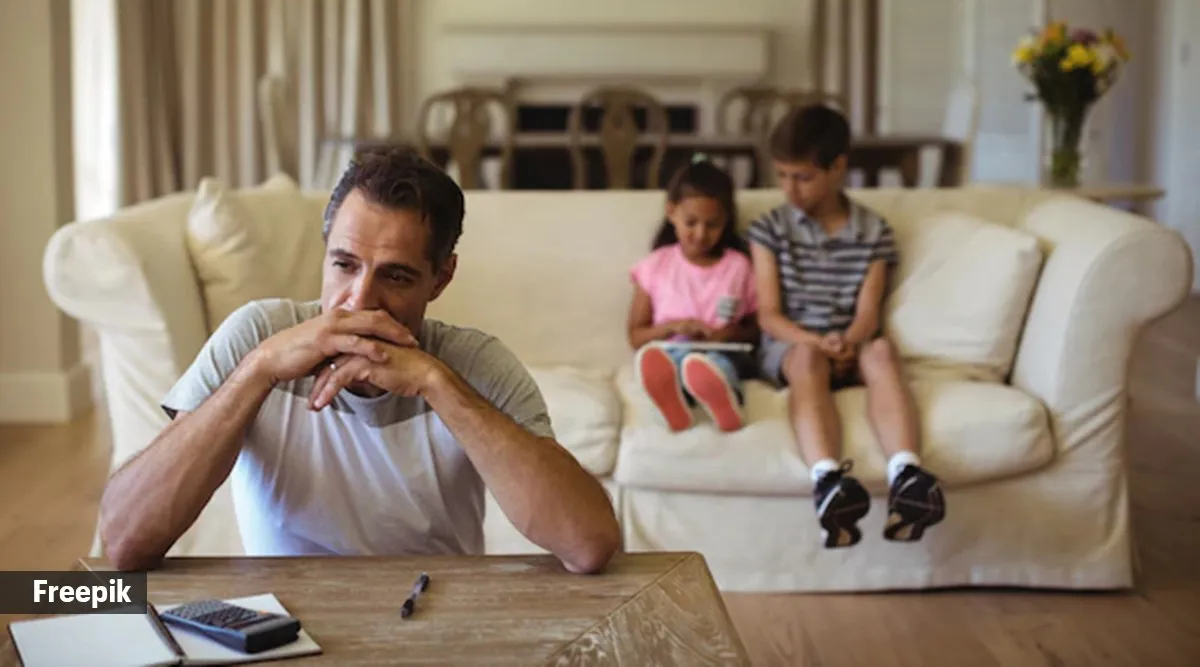Having a healthy parent-child dynamic is important for a child’s well-being as well as the parent’s emotional health. While most children are heavily dependent on their parents to fulfil their needs, the opposite can also be true in some cases.
It is normal for parents to turn to their children for physical and emotional support, but when a parent depends heavily on their child for companionship, it can prove to be extremely unhealthy.

This often leads to a dysfunctional dynamic between the two, referred to as emotional incest, which can further hamper the child’s adult relationship in the future. Explaining this through an Instagram post, Alex Bishop, a relationship anxiety specialist, wrote, “Emotional incest is more common than we’d like to think. Have you experienced this? What was this like for you? How has it affected you in your life and relationship now?”
To know more about emotional incest and what it entails, we turned to experts to understand the phenomenon.
According to Deepti Chandy, Therapist and COO, Anna Chandy & Associates, emotional incest takes place when a parent or primary caregiver is unable to establish boundaries and heavily relies on the child to cater for the emotional needs that their adult relationship would provide.
“Emotional incest is quite common in situations where the parents are having a bad marriage or a single parent is bringing up the child,” she said.
In a similar vein, Dr Austin Fernandes, Psychiatrist, Dr LH Hiranandani Hospital, Powai, Mumbai, said, “Also called covert or enmeshed incest, emotional incest is a delicate psychological term explaining the unhealthy emotional relationship between parents and kids. Although unintentional, it might have long-term harmful consequences for the child’s emotional health.”
What does it entail?
Dr Fernandes explained that in emotional incest, the parent may want to share adult problems with their child confidentially, such as marital issues or financial hardships, burdening the child with unwanted emotional duties.
“This can result in the child feeling overwhelmed, confused and nervous, as they may not have adequate emotional maturity. They may also struggle to establish healthy boundaries for themselves, and their own desires may be neglected,” he said.
Emotional incest is the most neglected abuse which can have serious implications for those who suffer it. Here are some of the major drawbacks of emotional incest, according to the expert:
*Loss of childhood: Emotional incest can deprive a child of their childhood. Instead of enjoying the carefree period of life which is an important part of their growth and development, they are burdened with adult life obligations and emotional caretaking which might affect their emotional and social upbringing.
*Low self-esteem: In such cases, kids start thinking that their worth is determined by how effectively they meet their parent’s emotional demands. This can be the reason for their low self-esteem and an ongoing sense of inadequacy.
*Difficulty in forming intimate relationships: Emotional incest can make it difficult for kids to build a healthy, strong, intimate relationship in the future. They may struggle to set limits and may seek affirmation and approval from others at every stage.
*Emotional discomfort: The continuous emotional support burden at such a small age where all these adult problems need maturity can lead to sadness, anxiety, or even post-traumatic stress disorder (PTSD) over time.
*Guilt and shame: Children who are undergoing emotional incest may feel guilt and shame if start creating boundaries with their parents just to meet their own needs. This can hurt their general development.
*Repeating patterns: Individuals who grew up in such circumstances may unknowingly develop poor habits with their kids if no assistance is provided, prolonging the cycle.
Most Read 1Chandrayaan-3 mission: Dawn breaks on Moon, all eyes on lander, rover to wake up 2As Indo-Canadian relations sour, anxiety grips Indian students, residents who wish to settle in Canada 3Karan Johar says Sanjay Leela Bhansali did not call him after Rocky Aur Rani: ‘He’s never called me but…’ 4Gadar 2 box office collection day 40: Hit by Shah Rukh Khan’s Jawan onslaught, Sunny Deol movie ends BO run with Rs 45 lakh earning 5Shubh’s tour in India cancelled: Why is the Canada-based singer facing the music?
If you’re undergoing such a situation, Dr Fernandes suggests some steps to build a healthy relationship again, including identifying and acknowledging the harmful dynamics, seeking professional help, encouraging open communication to express views, setting healthy boundaries, and apologising and making amends for past mistakes.
ALSO READ | How parents feel about feelings can deeply affect a child’s development
To build a strong and healthy relationship with your child, you need to spend meaningful time with them, be patient with them and build trust, commit to learning from your past errors and provide love, support and guidance to your child. Prioritising your own emotional well-being is also important, as it will allow you to start a new and positive bond with your child.
Also ReadUnderstanding the negative impact of helicopter parentingSleep vs Sex: When the child gets in the middle!‘Mom, Dad, what does rape mean?’7 conversations every parent must have with their teenager
For all the latest Parenting News, download Indian Express App.
© IE Online Media Services Pvt Ltd


